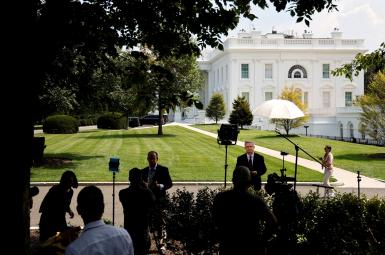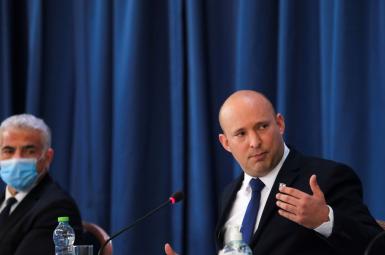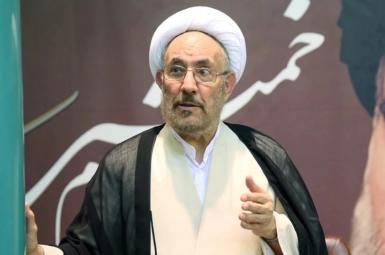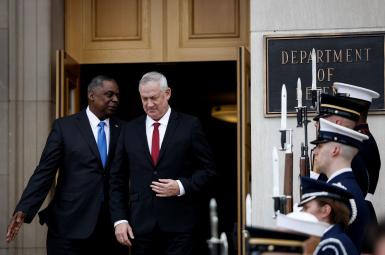
Top Iran Commander Threatens 'More Operations' Against Israel
The chief of Iran’s armed forces general staff, General Mohammad Bagheri, Sunday threatened Israel with more attacks, similar to what he said were strikes in recent days.
Bagheri who avoided directly linking incidents in Israel to Iran or its regional allies, said, “Operations in recent days and in the future will definitely endanger their interests and will bring them [Israelis] to their senses.”
Bagheri speaking to Iran-affiliated Al-Mayadeen television did not specify what operations he was referring to, and added, “We don’t know who was behind them”. But the question of the reporter was about a missile landing in the part of the country where Israel’s nuclear reactor is located and a strong explosion at a military production facility on April 20.
A missile fired from Syria landed in the general area of the Dimona nuclear reactor on April 22, raising fears of an intentional attack that could have led to a major disaster. However, it became clear that an anti-aircraft missile fired by Syrian defenses against Israeli planes veered off and landed 30 kilometers form the reactor.
The earlier explosion at a sensitive government missile production facility in central Israel has remained a mystery, but one official has said the explosion was a deliberate test.
Iran generally avoided its usual bluster to claim any sort of responsibility for an intentional act, but a few hardliners tried to present the incident as an attack.
Also on Saturday, Palestinian militants in the Gaza Strip fired dozens of rockets into Israel drawing retaliatory air strikes, the Israeli military said, after nightly Ramadan clashes between Palestinians and Israeli police resumed in Jerusalem.
But Bagheri also mentioned suspected Israeli air strikes against Iranian military targets in Syria and implicitly linked “recent events” to those attacks.
Tensions have risen between Iran and Israel in recent weeks as the United States and its European allies have entered talks with Tehran to revive the 2015 nuclear agreement.
An apparent act of sabotage rocked Iran’s uranium enrichment underground site in Natanz on April 11, and Tehran quickly blamed Israel. Although Israeli officials did not take responsibility, but the country’s media was quick to claim that a cyberattack had caused an explosion and fire. Later, a top Iranian official said that a bomb placed inside the facility had caused the explosion.
Iranian officials vowed retaliation and revenge for the Natanz explosion and when the Syrian air defense missile veered off and landed at a distance form the Israeli nuclear reactor it created serios concerns.








